|
Get ready for the shift key, baby. Since the collapse of the Soviet Union, and the subsequent selling off of that country's public assets to gangs of oligarchs, there has not yet emerged a single force to rival the considerable imperial power of the United States of America. Instead, principled anti-imperialists must cobble together a host of imperfect nations and political movements to form a hodgepodge coalition against the continuing encroachment of the American ruling class and its interests over the oppressed peoples of the world. This support brings with it its own problems, but in light of the magnitude of America's crimes against the globe, such "deals with the devil" are palatable by default. As such, I thought it would be useful to lay out both the case against American imperialism and what are, to my mind, the necessarily critical sympathies that must be developed to effectively combat the empire on the geopolitical stage. Building a movement here at home that exhibits these sympathies is essential for long-term success, and every avenue must be explored even posts on Internet joke forums about how Donald Trump is a Creamsicle clown man, which he is. I ask that this thread not devolve into pointless digressions into how I or other anti-imperialists unequivocally love every listed government or head of state or think they never made a mistake. Besides being patently untrue, it's not the purpose of the thread. For much of these countries, my goal and the goal of many other anti-imperialists is improvement by means of mass workers' movements, which can better develop in periods of economic uncertainty brought on by anti-imperialist action. This isn't "accelerationism;" it's an understanding that apparatuses of repression are harder to maintain with a weakened economy. The same, of course, goes for the United States. FBI/NSA/ETC note: I am not advocating for violence here, or anywhere else. This is analysis only. Incidentally, I hope you are enjoying your forums experience. I. What Is Imperialism? As with most arguments, it's useful to define terms before delving into the nitty-gritty. The most important one, of course, is imperialism. When I and other Marxists use it, it is in specific reference to the concept as laid out by Vladimir Lenin in his paramount work, "Imperialism, the Highest Stage of Capitalism." Without getting into the Marxian economic principle of surplus value, to most simply sum up Lenin's definition, I'll quote a bit from the text. Vladimir Lenin posted:It is characteristic of capitalism in general that the ownership of capital is separated from the application of capital to production, that money capital is separated from industrial or productive capital, and that the rentier who lives entirely on income obtained from money capital, is separated from the entrepreneur and from all who are directly concerned in the management of capital. Imperialism, or the domination of finance capital, is that highest stage of capitalism in which this separation reaches vast proportions. The supremacy of finance capital over all other forms of capital means the predominance of the rentier and of the financial oligarchy; it means that a small number of financially powerful states stand out among all the rest. What's most important about this theory is that nearly a century after his death, Lenin has been proven entirely right. This pamphlet was written in 1917, presaging the creation of the International Monetary Fund, the North Atlantic Treaty Organization, the World Bank, the League of Nations, the United Nations, the G7 Summit, the European Union and most other international organizations you can think of. You don't have to be an InfoWars conspiracist to observe this level of cooperation among capitalist nations, combine it with what we know of 20th century history and conclude that the interests of these economies line up naturally, by virtue of the classes that own the means of production. No shadowy cabal required. Secondary to this is Lenin's theory of "revolutionary defeatism," the belief that because wars are fought on behalf of ruling classes rather than the people of a country, ultimately the best possible option for the working classes of those countries is defeat. This goes against all intuitive logic and propaganda in an imperial country, but the defeat of a ruling class would strengthen conditions for the creation of a revolutionary working class. This theory was developed in the April Theses, The Tasks of Revolutionary Social Democracy in the European War and The Defeat of One's Own Government in the Imperialist War. II. Why Combat Imperialism? While I could go into detail on some of the domestic imperial action the American government has undertaken, it's perhaps best to keep things focused on violations of sovereignty abroad. We can get into the United States' policies of mass incarceration and suppression of protests later in the thread to say nothing of the conditions which led to the United States becoming an imperial power if people want. In any case, not since Rome have we seen this kind of imperial fervor. No force in history has had the technology, the manpower and the unmitigated gall to wreak havoc on other nations' right to self-determination. With this force has come death, deprivation and a ravaged Third World on a scale never observed in history. How could we look the people of Hiroshima and Nagasaki in the eye in 1945, much less now, with the knowledge that was only the beginning? To better lay out my point, here is a list of interventions, military or otherwise, that the United States has performed since the Second World War. My source, Killing Hope, is exhaustively researched and required reading for anyone interested in the subject, though it is now a little out of date. Former State Department and CIA employee William Blum can only write so fast, after all, and it's not his fault he can't keep up with the latest bouts of pillaging and mayhem. quote:
"What about interventions from so-called anti-imperialists?" you may ask. A fair question. Here they are. You may notice some of these countries and dates coincide with previously listed ones. Why might that be, I wonder? Also worth noting: I'm being very generous and including instances of aid and support to movements of national liberation, and extending some dates to include benign trade and diplomatic relationships. I've also included some that could more accurately be described as border disputes, such as Chechnya and Tibet. There are very few examples of direct military engagement against sovereign nations on the part of these countries. Soviet Union/Russian Federation quote:
People's Republic of China quote:
Democratic People's Republic of Korea quote:
Islamic Republic of Iran quote:
I have not included the Syrian Arab Army, as they're deep in civil war against roughly 50,000 different factions, some getting support from imperial nations, some getting support from anti-imperial nations and also Daesh is there. Plus Syria's place as anti-imperialist force is murky, as the armed forces were behind the 1949 coup (which I forgot to include in the U.S. list! Whoopsie!) and the Ba'ath party is a fair- or foul-weather friend to anti-imperialism, at best. At the moment, they stand opposed to American gamesmanship, but as is the case with many countries in the Middle East, their relationship with the United States can change. Anyway, the point is, these actions pale in comparison to the number of times the United States has interfered in the matters of other countries, generally bringing along the usual suspects: Pestilence, War, Famine and Death. There's probably some sad soul who's crunched the numbers and come up with an imperialism death toll, but I haven't included it here because calculating "existential evil" in terms of Megadeaths is more than a little macabre. Safe to assume it is high, to say nothing of the economic impact of crisis after crisis, invasion after invasion, at the expense of both imperialism's victims and the American people. III. Who Combats Imperialism? Here we come to what will no doubt be the most controversial section of the post. Let me again emphasize "critical support" is not the same thing as "unequivocal support," and if someone wants to get into the details of why one of these places is Very Bad, link me to the relevant thread and we can discuss it there. This thread is meant to address imperialism and anti-imperialism and the alliances therein, not the specific policies of the DPRK or Syria or whomever. Observe, the ragtag collection of heads of state standing against the American empire. I've listed them in descending order, in terms of how I'd support them outside the context of American imperialism. Some, like Cuba and China, get my support generally. Others, like Russia, do not. But, as I say in the title, these "devil's bargains" are necessary to bring an end to the most destructive world power in all of recorded history. When that's happened, anti-imperialists can focus on improvements in those countries. Bringing the war machine to a grinding halt takes priority for the vast majority of the world's people. Republic of Cuba   The granddaddy of antiimperialismo. Cuba has withstood countless attacks on its sovereignty from the United States, both before and after the 1959 revolution. Attempted invasions, assassinations and the cruel embargo which has throttled Cuba's trade relationships haven't forced the tiny island nation to budge an inch. Through all this aggression, Cuba has managed to develop ground-breaking medical treatments, such as the creation of a lung cancer vaccine and the prevention of mother-to-child HIV transmission. Not only that, but through the years Cuba has seen women make up an even greater percentage of the country's high-skill workforce and legislature, with 48.9% women in its parliament and higher than 50% representation for doctors, attorneys and university students. Cuba isn't perfect as no nation is but compared to its neighbors in the Caribbean, it's leaps and bounds ahead despite adverse circumstances. It remains an anti-imperial bulwark, 90 miles away from an enemy who would like nothing more than to see it destroyed, no matter Obama's rhetoric. People's Republic of China 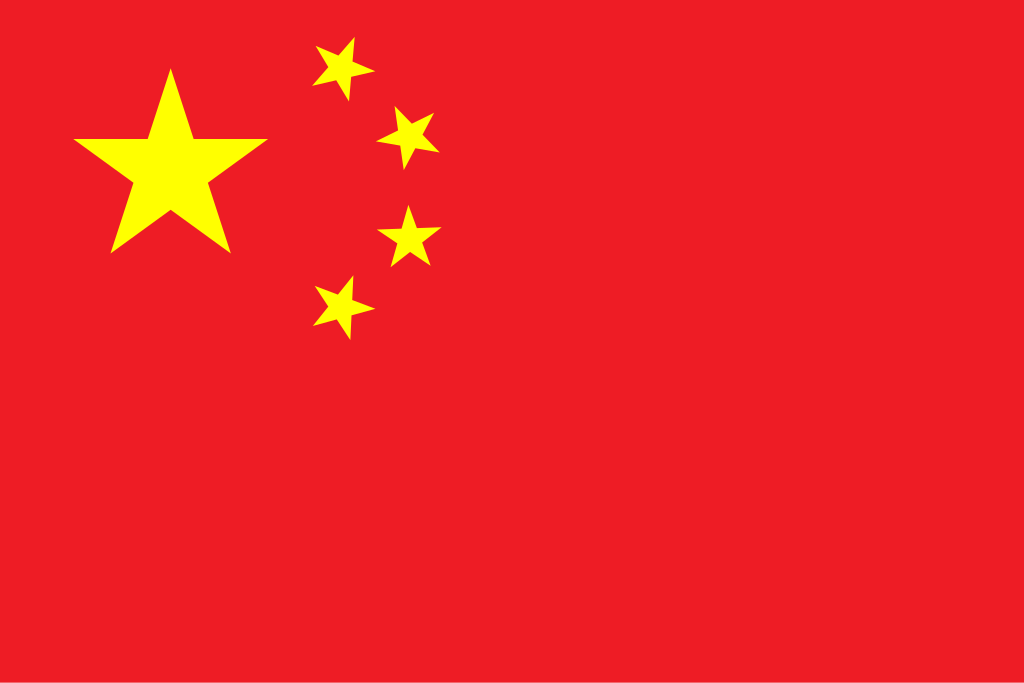  Though the Sino-Soviet split of the 1960s saw China turn to the United States for assistance and in all likelihood dealt a death blow to 20th century communism in doing so China is ever-wary of its new economic friendship. There's little chance of all-out war or military conflict breaking out between the two, but Xi Jingping is smart enough to know the Chinese economy should continue to be built up in case things begin to heat up. The bloviating of politicians in America against the PRC has reminded China the US is a temporary ally at best, which is probably why Xi has begun to reach out to nations in Africa. "The more friends, the better" is good policy all around for a nation still finding its footing in a world both economically and militarily dominated by a country that all too recently considered it an enemy. Socialist Republic of Vietnam   Similarly to China, Vietnam is undergoing a period of reform to maintain socialism in a post-Soviet world. Obviously, the United States' loss in the Vietnam War dealt a blow to its credibility as an imperial power, but since the end of the Cold War has been reasserting itself in new, terrifying ways. Vietnam and China have gotten over their differences in the Cold War era and have since become strong trade partners, though that has not led to a formal alliance or a more concerted lining up of national interests in the case of the South China Sea, quite the opposite. But in terms of development, China appears to be leading the way for the Vietnamese, and as such neither has made any attempt to disrupt relations with the United States. But that's globalization, folks. Democratic People's Republic of Korea   Now we're delving into more aggressive opponents of American imperialism, and consequently getting into countries more heavily propagandized against. As I said, there are other places to talk about the DPRK government and how unreliable our reporting is about this country. It throws suspicion on everything we hear. No matter your opinion, the DPRK suffered unimaginable loss during the Korean War, with a full third of the population killed and the city of Pyongyang leveled by the fighting. With that bloody history fresh on the mind, and with the United States military playing war games and undergoing nuclear tests on its border, does it come as a surprise the DPRK would emphasize its military as a means of self-defense? The people of Korea know very well what American invasion and occupation is like. And, to most Westerners' surprise, it's not just the north that wants the US out. The "Sunshine Policy" of the late '90s and early '00s was making great strides toward a friendlier relationship between the DPRK and the Republic of Korea. But the Bush administration's "Axis of Evil" saber rattling put a stop to that. With American troop movement interfering with peace and reunification, the ROK has its own share of anti-imperialists, despite the prevailing opinion of Americans who've never visited. Therefore the ROK could be included as an "honorary member" of the anti-imperialist bloc, if a government similar to Kim Dae-Sung's ever made its way back into power. Bolivarian Republic of Venezuela   Venezuela's in a bad way, and in no state to take the kind of defiant stance against the Yanquis the way it could under Hugo Chavez. Dependence on oil for revenue meant plummeting economic growth and skyrocketing inflation when the price of crude dropped, and the Venezuelan people are worse for wear. Nothing like we've seen before, though, right? Plurinational State of Bolivia .svg/2000px-Flag_of_Bolivia_(state).svg.png)  Evo Morales has tangled with American empire and lived to tell the tale. An indigenous activist who rose to power on a platform of land reform and wealth redistribution to the rural poor, his presidential campaign was sabotaged by the American political consultancy employed by his right-wing opponent. This is an example of the "soft" imperialism which has taken the place of direct military action in many countries. NGOs and extragovernmental groups do the heavy lifting formerly undertaken by the state, and the United States government reaps the rewards. Obviously, this isn't as controlled a process as the CIA monkeyshines of yesteryear, but the end result is the same. Both the 2005 documentary "Our Brand Is Crisis" and the 2015 fiction film of the same name explore the methods by which Morales was first defeated, though somewhat perversely in the latter the amoral consultants are the heroes. The documentary, at least, is worth a watch if you're interested in how America flexes its muscles in the 21st century. Russian Federation 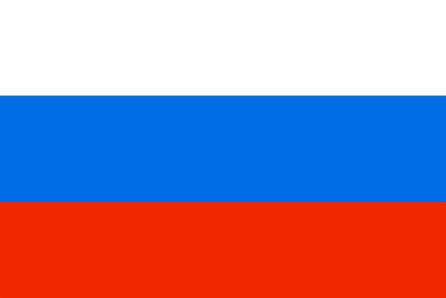  A far cry from the geopolitical rival which stood toe-to-toe with the United States during the 20th century, the former Soviet Union nevertheless provides counterweight to American empire. The "gangster capitalism" of Russia is fracturing, but the United Russia government continues to antagonize the United States by maneuvering against it in places like Syria and Ukraine. Russia ranks low on this list due to its capitalist restoration and its poor treatment of LGBT citizens, inferior to the United States (since about five years ago, at least). With the Russian people still approving of the Soviet system over the current one by a wide margin, I'm hopeful Lenin's theory of revolutionary defeatism proves correct and Russia's chest-beating against the far better-equipped United States will create conditions ripe for the restoration of socialism. Islamic Republic of Iran   Relations between the United States and Iran have most assuredly thawed thanks to the Obama administration's nuclear deal. But as anyone who's paid attention to American politics knows, this newfound common ground is shaky, at best. The United States, as with all the countries on this list, has a troubled history with Iran. A new president even a President Hillary Clinton or (lol) Bernie Sanders could reverse the mild progress made in recent years. With this in mind, Iran is hedging its bets without resorting to the kind of fiery rhetoric employed by Mahmoud Ahmadinejad. Remembering the Iranian Revolution of 1979 was in direct response to the US-backed rule of the Shah, it's unlikely Iran will ever fully trust the Americans and with good reason. Most candidates for president this cycle appear to be spoiling for a fight with the Islamic republic, so it warrants a place on this list as a perpetual thorn in the ruling class' side. Syrian Arab Republic   Syria, like most Ba'athist countries, is a temporary ally to anti-imperialists, as their allegiances have changed repeatedly over time. This is, shockingly, largely the result of American meddling in the region over the last half century. For the moment, the Assad government in Syria is positioned against US-backed rebel groups in the civil war, and Russia has made Assad's stability a priority. American policy has been wishy-washy on Syria, with various voices in government calling for Assad's ouster and others choosing to emphasize the threat of Daesh, who have been the beneficiaries of American arms shipments, intended or otherwise. Syria is a mess, and the best option here for anti-imperialists is to push for an end to the war and an end to American incursion in the beleaguered nation. "Hands Off Syria" is the rallying cry; while the Kurdistan Workers' Party is probably the most progressive force in the country, our government's support of the YPG should be viewed with suspicion. "Follow the money" isn't an idle axiom. Assorted Nation-States in the Global South .svg/2000px-Flag_of_Eritrea_(1993-1995).svg.png) 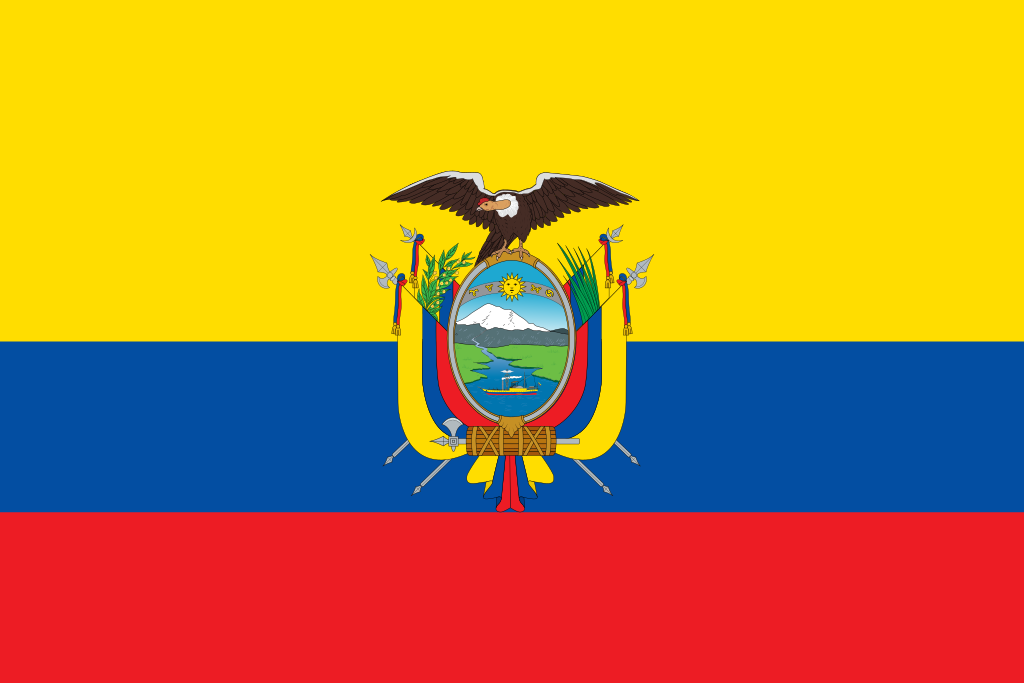  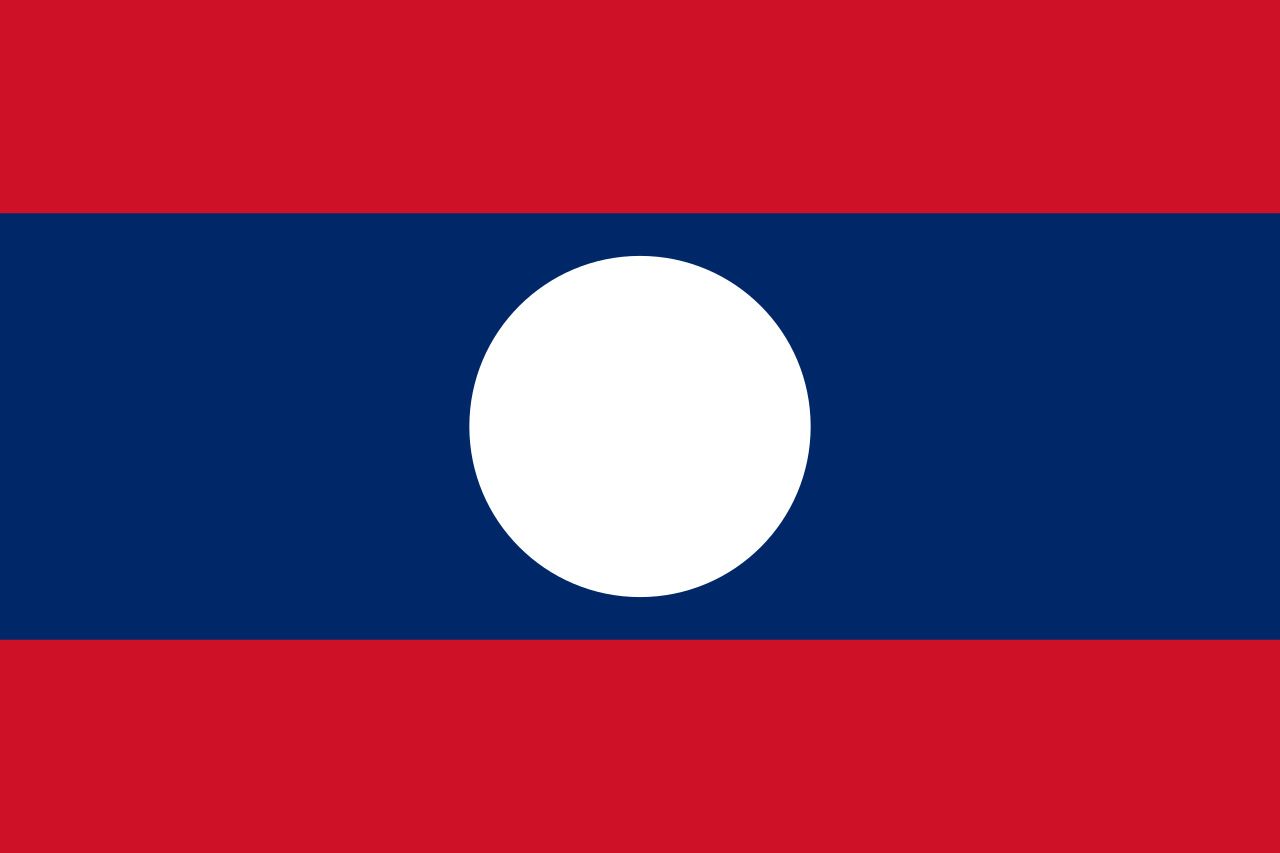  .svg/2000px-Flag_of_Nicaragua_(1924).svg.png) These are countries which haven't reached a stage of development to offer strong resistance to the United States as the risks are too high but still represent a budding threat to imperialism with their very existence. In short, states which are unwilling or less willing to do the United States' bidding, but aren't belligerent about it. (Plus Nepal's flag kicks serious rear end.) Movements of National Liberation and Independence     Here we get into the REALLY abstract, as the anti-imperialist movements without a foothold on state power number in the many dozens, perhaps over a hundred. Their ideologies vary; there are explicitly Marxist movements along with nationalist and popular uprisings. Not all are engaging in armed conflict with their respective governments, though others are. It's a grab bag of motivations here, though all have one thing in common: Were they to win, America would lose a friendly force somewhere on the globe. Some are taking place in countries which the United States considers allies. Some are in "non-aligned" territory many, many in Africa especially. Some are even in the aforementioned anti-imperialist countries, as success for those movements means a more progressive force in control of a nation, and we can then extrapolate a stronger and more unified coalition against imperialism. Syria is a good example of this the PKK's winning of territory in Kobane and generally being a bee in Erdogan's bonnet spells great potential for a future member of an anti-imperial force in the form of an independent Kurdistan. Of course, since these movements have not yet won, and are struggling in countries with various levels of economic development, it's hard to say when they'll become a meaningful player in the fight against imperialism. I mention them here, in the abstract, to show just how much of an uphill battle this is, and how long this project will take. IV. Victory Begins at Home  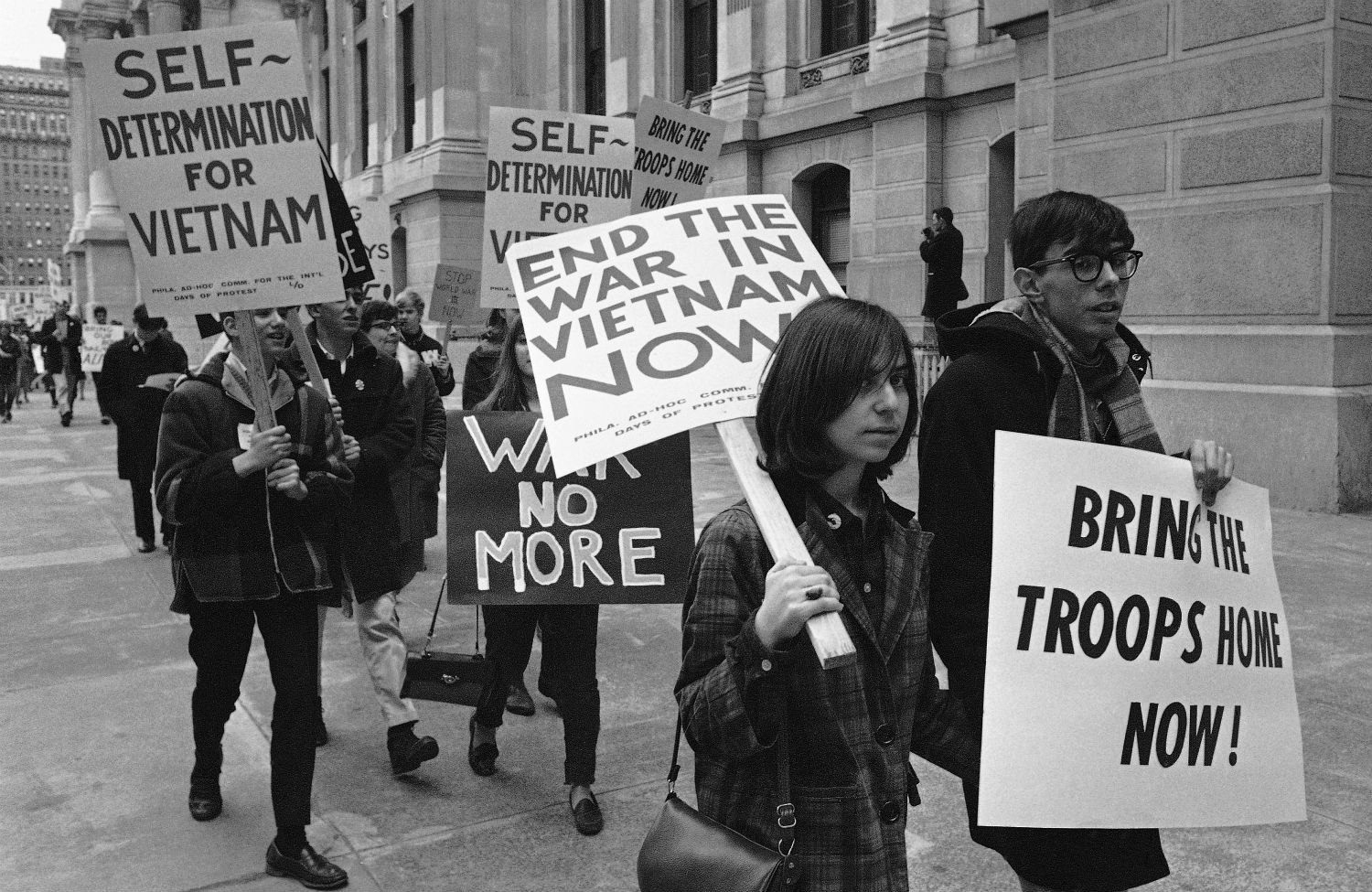  What, then, is to be done? Most of us are no doubt living in the nerve centers of the imperial power base, either in the United States or Western Europe. How can a person's commitment to this position translate to real political action? The obvious answer is organizing and nonviolent protest. Major cities will have quite a few orgs to join, whether specifically anti-war or anti-imperialism or part of a broader political tapestry. We've seen the results of disciplined mass action sustained anti-imperial sentiment had a hand in bringing an end to the Vietnam War, it turned public opinion against the wars in Iraq and Afghanistan and has forced the empire to exert its power in more complicated, more technologically advanced ways to avoid rocking the boat with a war-weary populace. This is not only more expensive to maintain, it means the imperial hold on a subject nation is more tenuous. Without a strong military presence, after all, absolute control is harder to come by. Proxy forces can rebel one's own soldiers rarely do. All this strategy is being discussed in the abstract, mind you. Conditions change based on the situation, so specifics will be different in each avenue of struggle. Again, let me emphasize that in encouraging strong anti-imperialism, I do not advocate for any illegal activity. Doing so is, obviously, illegal, but also counterproductive. It's easy enough for the capitalist state to repress dissent Lord knows it's foolish to make it any easier. V. Conclusions You'll notice, of course, that many of the countries listed here have been designated the worst of the worst by our government, the media and the general cultural attitude in imperial nations. While some claims might be true, it's important to keep in mind the biases and ideology at play anytime we receive news about one of these places. Whether we mean to or not, we're influenced by the dominant ideology of our country, which is in our case capitalist ideology. Which narratives will find purchase here? Which won't? Is it more or less likely the horror stories we hear about these places find our eyes and ears because we live in a self-perpetuating system? Consider the chances of a major publisher printing any work in opposition to this ideology, and then wonder why most counter-hegemonic research and history is found under the aegis of academia, a relatively "safe space" due, not coincidentally, to its lack of popular appeal. Again, this is not tinfoil mania. Political economies, histories and analysis of countries which have resisted imperialism do exist. They're well-researched and written by academics in good standing who, as far as I know, have passed a mental competency test. But no one reads them, or knows they exist. There's a reason why. If people are interested, I can link some good ones. Previous attempts to talk about counter-narratives to the imperial consensus have resulted in the threads being closed and the OPs penalized. I'm hopeful this can be a productive venue for discussion without the endless parade of empty digressions that plagued those endeavors. R. Guyovich fucked around with this message at 19:28 on Jul 1, 2016 |
|
|
|

|
| # ? May 5, 2024 14:01 |
|
I think you'll find that imperialism is actually good and cool as long as your country is strong enough to be the imperialist and not the imperialee. Think of all that sweet Incan gold.
|
|
|
|
Free Blankets. No plague, we swear.
|
|
|
|
When America or the West exploits lesser nations it's imperialism and we must unite as comrades to defeat them. When China or Russia or any other country engages in misadventures or exerts their will against others it's "reaching out" and cool and good. ~25 paragraphs to say that you have double standards. Got it.
|
|
|
|
You should print this post out, frame it, and put it as the central exhibit in a museum about the Internet Left's disappearance up its own rear end.
|
|
|
|
crabcakes66 posted:When America or the West exploits lesser nations it's imperialism and we must unite as comrades to defeat them. I have no interest in operating in the realm of idealism. No country is perfect as I say, repeatedly and an anti-imperialist bloc will have its share of mistakes and problems. They pale in comparison to those of the imperial powers. Outside of Russia's obvious incursions into Georgia and the Ukraine, I'm curious as to what you're referring to, specifically. Nude Bog Lurker posted:You should print this post out, frame it, and put it as the central exhibit in a museum about the Internet Left's disappearance up its own rear end. Great post!
|
|
|
|
Homework Explainer posted:Great post! At least it was concise. You should try that - you could have just posted "I am a tankie" and it would have covered all your points in far fewer words.
|
|
|
|
Homework Explainer posted:I have no interest in operating in the realm of idealism. No country is perfect as I say, repeatedly and an anti-imperialist bloc will have its share of mistakes and problems. They pale in comparison to those of the imperial powers. Outside of Russia's obvious incursions into Georgia and the Ukraine, I'm curious as to what you're referring to, specifically. Do you not have an interest in it because it blows a giant hole in your argument?
|
|
|
|
It's interesting how the countries that are the left's darlings for "combating imperialism" also tend to be generally run by some of the biggest shitbags on the face of the planet. Iran? North Korea? Venezuela? These are your loving guys? These are the countries that have values you want to champion?
|
|
|
|
Is there a correlation between anti-imperialism and domestic tyranny?
|
|
|
|
Volcott posted:Do you not have an interest in it because it blows a giant hole in your argument? If I thought it would blow a giant hole in my argument, I wouldn't have included a list of actions taken by countries in the anti-imperialist bloc. Which, by the way, if I'm missing some, I'll be glad to include them.
|
|
|
|
Homework Explainer posted:If I thought it would blow a giant hole in my argument, I wouldn't have included a list of actions taken by countries in the anti-imperialist bloc. You don't think you look a little silly suggesting the country that intervened the most in, say, Poland, between 1945 and 1991 was the United States? I feel that the Poles might disagree with you on this.
|
|
|
|
Volkerball posted:Is there a correlation between anti-imperialism and domestic tyranny? -Troika- posted:It's interesting how the countries that are the left's darlings for "combating imperialism" also tend to be generally run by some of the biggest shitbags on the face of the planet. Iran? North Korea? Venezuela? These are your loving guys? These are the countries that have values you want to champion? These questions are related, so I'll answer them at once. Again, developing a functional, effective anti-imperialism means making some unsavory choices. Taking a "Neither the US nor X!" position is as meaningful as having South Park politics domestically, so a "devil's bargain" must be made for the greater good as the thread title suggests. I can't emphasize enough how much of a stranglehold the United States et al. has on most of the world, even in a post-Cold War environment. Besides, putting a stop to imperialism is the only way to create a better world in the long run, even if you think the countries I've mentioned are Hells on Earth. Take the DPRK, for example. If a regime change is to ever happen there with the fewest casualties, it certainly won't by way of the American jackboot. So, no matter your opinion of the DPRK or the ROK, the path to peace and unification begins with the United States leaving. That's something we can agree on, and it's why self-determination takes precedence above all else. The same is true for Iran. People under vicious sanctions or the threat of destruction can't organize very well, can they? How will the government there change, then? Democracy by way of F-22? Nude Bog Lurker posted:You don't think you look a little silly suggesting the country that intervened the most in, say, Poland, between 1945 and 1991 was the United States? I feel that the Poles might disagree with you on this. That's a deliberately specific example. I could do the same thing with dozens of countries vis a vis the United States. And after the incorporation of Poland into the Warsaw Pact, were there major actions taken before the rise of Solidarnosc? I'm genuinely asking, because I don't claim perfect knowledge here. Though I would add that group was heavily financed by the CIA. R. Guyovich fucked around with this message at 03:03 on Jun 11, 2016 |
|
|
|
You seem to have started with a premise-- "the US is bad and terrible and Must Be Destroyed" and then just cherry picked random poo poo to attempt to support it. How is your attempt at an argument any different from the crazy third world maoism wordpress guy's posts?
|
|
|
|
-Troika- posted:You seem to have started with a premise-- "the US is bad and terrible and Must Be Destroyed" and then just cherry picked random poo poo to attempt to support it. How is your attempt at an argument any different from the crazy third world maoism wordpress guy's posts? Well for starters, I didn't spell "America" "AmeriKKKA." Plus I don't consider workers in the first world scum counter-revolutionaries or whatever.
|
|
|
|
Homework Explainer posted:These questions are related, so I'll answer them at once. What greater good are you hoping to see Putin, Assad, and Kim Jong un usher in? I know you'll probably disagree with this, but Syria is a very clear example of the US taking a backseat. By scale, the US has provided arms at a much lower rate than several other countries. By any metric, KSA, Turkey, Russia, Iran, Saudi Arabia, and Qatar have played more of a role in Syria when it comes to Assad than the US has. With that as a standard bearer for what happens when the US doesn't act, it sure doesn't look like the US is uniquely evil, or that the absence of the US brings about more positive resolutions, given how horrible the situation in Syria has gotten. I'd argue that the US' is dependent on a lot of factors that many of those nations I just listed are not, which gives them more of an ability to do good. The US invaded Iraq, and Bush and all his friends were purged from government, we elected a President who's campaign was "I think we need to get out of Iraq *drops mic*" and since he's been elected, we've seen massive drawdowns all over the world from the US. There was change as a result of what people wanted. When Russia goes and bombs marketplaces in Syria or Ukraine, if people don't like it, tough poo poo. Putin runs the country and there's nothing you can do about it. If you try, you will go to prison. I don't see how this anti-imperialism coalition of yours can achieve anything positive when what they attempt to accomplish is subject to nothing other than the whims of dictators. quote:Besides, putting a stop to imperialism is the only way to create a better world in the long run, even if you think the countries I've mentioned are Hells on Earth. Take the DPRK, for example. If a regime change is to ever happen there with the fewest casualties, it certainly won't by way of the American jackboot. So, no matter your opinion of the DPRK or the ROK, the path to peace and unification begins with the United States leaving. That's something we can agree on, and it's why self-determination takes precedence above all else. The same is true for Iran. People under vicious sanctions or the threat of destruction can't organize very well, can they? How will the government there change, then? Democracy by way of F-22? Among the Iranian youth, approval of the government is quite low, and there is very prominent pro-Western sentiment in the country, to the point that the Iranian government has to try and slander them as Western spies trying to infiltrate the country to overthrow the government. All of that developed in the face of sanctions. It doesn't matter whether or not there are sanctions, it matters who people blame for sanctions. In Iran, people blamed the government. People in North Korea and other like-minded totalitarian dictatorships would be wise to do the same, because their unaccountable, oppressive governments are indeed loving up. I'd also point out that the US is far from the only nation on earth who has acted in a way that was not consistent with the path of peace and unification. Russia in Ukraine and Syria. Iran in Syria and Iraq. KSA in Syria and Yemen. These are objectively imperialist actions. You're advocating for a creation of a vacuum because you assume that literally anything is preferable to a major US role, but that doesn't take into account that we've seen such vacuums, and we've seen regional and international powers fill the void and act the exact same way as the US, sometimes with even worse intentions. You're not convincing me that it's the best way forward. Volkerball fucked around with this message at 03:29 on Jun 11, 2016 |
|
|
|
Heh, the Soviets rolling tanks into Prague doesn't make the list of imperial action (because their occupation/domination of all of eastern europe is also ignored).
|
|
|
|
China has the largest trade surplus, does that mean it is an imperialist nation? Or does a nation actually need a vast military apparatus placed across the planet to qualify?
|
|
|
|
-Troika- posted:It's interesting how the countries that are the left's darlings for "combating imperialism" also tend to be generally run by some of the biggest shitbags on the face of the planet. Iran? North Korea? Venezuela? These are your loving guys? These are the countries that have values you want to champion? Even setting values aside, who wants their economic results? Cuba is a great example. The US banned US companies from trading with Cuba. It dissuaded its allies from doing the same. That's pretty much the best case if you think capitalism is inherently exploitative. Cuban workers got to keep every minute's worth of their labor. But the results aren't that impressive.
|
|
|
|
I'm sympathetic to the notion that American imperialism is bad, but if one of your basic premises is that the United States of America is so powerful that we need to form a coalition of the biggest and baddest foreign opposition to it, and they already did that in the Cold War and failed, I feel like your argument isn't going to work. The united powers of global communism, the lovely, useless totalitarians that they were, challenged the Western World for the better part of a century and were destroyed for it. What the gently caress is the new Russian Empire and its rag-tag group of international supporters going to do? The Cold War was a disaster for the United States, nearly as much as it was for the Soviet Union, insofar as it solidified generations with the idiotic notion that liberal capitalism would save them before peaceful unionization and socialism would (because unions were obviously evil, of course). Anti-imperialism would do well to consider this before it decides the best course of action is to drum up Cold War round two and give the fascists something big and scary to use as their Other.
|
|
|
|
The OP starts with the observation (correct IMO) that imperialism--if we are willing to use a broadened and more modern sense of the word as outlined in the OP--is fundamentally a feature of late stage capitalist economies. You then propose an "anti-imperialist" strategy which amounts to: 1. Advance the national interests of a pack of authoritarian governments 2. ??? 3. NO MORE IMPERIALISM! Your argument boils down to the idea that a more multi polar world--irrespective of how poo poo-coated those many poles are--will somehow unwind the negative consequences of imperialism. And yet this is is 1.) totally contrary to historical experience, and 2.) does nothing to address the economic underpinnings of modern imperialism. It's also worth pointing out that while end stage capitalism develops features which resemble traditional imperialism, so does basically any system where power and ownership is increasingly concentrated into the hands of a few. While some of the "anti-imperialist" nations you list are at least nominally anti-capitalist (many aren't), most of them are ruled by oligarchs who have shown every interest in accumulating wealth and power and exerting control over anyone within their sphere of influence. The idea that the ruling class of such states, in the absence of American hegemony, would not create their own monopolistic associations and divide the world between themselves requires a willing blindness. States like Russia, China, and Iran already do that to the utmost extent that their influence and power allows. If you wan't to make something even resembling a coherent argument, you have to establish how American hegemony is uniquely bad for the world, or elucidate the mechanics of how opposing that hegemony will improve things. There are plenty of counter arguments, the most obvious being the apparent suppression of large scale inter-state war. Or the fact that the dual pole world that existed during the Cold War nearly produced a nuclear exchange on several occasions. Ultimately I think you will have a hard time presenting a credible solution to the problems of imperialism that does not fundamentally rely on people asserting control over their governments and actively opposing imperialist policies and behaviors. Simply opposing imperialist states by supporting whoever and whatever else is out there is a lazy and aimless non-plan. But it is a lot easier, so I'll give you that.
|
|
|
|
These kinds of lists are pretty common and it's fun trying to see how many arbitrary omissions/inclusions there are. On my first pass I noticed you missed Ethiopia (1970's, USA, USSR) which is pretty common, but you also omitted obvious ones like Japan, Taiwan, and Diego Garcia, which I assume you did on purpose for some reason. And of course, the one I always look for first, and the one that's always missing: Iranian Azarbaijan (1940's, USSR). On a personal level, I hate how Iran gets always gets short shrift on these lists- but you must have gotten bored by the time you had to research that one, because you barely tried. The Soviets inherited the greatest intelligence apparatus of it's time from the tzars; revolutionary Iran got something almost as good relative to their situation. In addition they developed possibly the best special forces community in Asia. Of course Iran has been enormously active in other countries. I really wish there was more English-language research available on people like Suleimani and Musa Sadr, because they are amazing characters.. Why would you do this to yourself Dilkington fucked around with this message at 04:42 on Jun 11, 2016 |
|
|
|
asdf32 posted:Heh, the Soviets rolling tanks into Prague doesn't make the list of imperial action (because their occupation/domination of all of eastern europe is also ignored). No, Hungary 1956 is right there, listed as fraternal assistance by the Red Army to their brothers being assaulted by American imperialist aggression icantfindaname fucked around with this message at 04:42 on Jun 11, 2016 |
|
|
|
Volkerball posted:What greater good are you hoping to see Putin, Assad, and Kim Jong un usher in? I know you'll probably disagree with this, but Syria is a very clear example of the US taking a backseat. By scale, the US has provided arms at a much lower rate than several other countries. By any metric, KSA, Turkey, Russia, Iran, Saudi Arabia, and Qatar have played more of a role in Syria when it comes to Assad than the US has. With that as a standard bearer for what happens when the US doesn't act, it sure doesn't look like the US is uniquely evil, or that the absence of the US brings about more positive resolutions, given how horrible the situation in Syria has gotten. I'd argue that the US' is dependent on a lot of factors that many of those nations I just listed are not, which gives them more of an ability to do good. The US invaded Iraq, and Bush and all his friends were purged from government, we elected a President who's campaign was "I think we need to get out of Iraq *drops mic*" and since he's been elected, we've seen massive drawdowns all over the world from the US. There was change as a result of what people wanted. When Russia goes and bombs marketplaces in Syria or Ukraine, if people don't like it, tough poo poo. Putin runs the country and there's nothing you can do about it. If you try, you will go to prison. I don't see how this anti-imperialism coalition of yours can achieve anything positive when what they attempt to accomplish is subject to nothing other than the whims of dictators. Well, you're right, I do disagree with that assessment. After the chemical attack, America was spoiling for invasion and the deal Putin brokered was the only thing standing between Syria and full-scale military action by the United States. That deal suggests to me that Putin, for all his bloviating, isn't as bloodthirsty as he's made out. That was a strategic move, sure, but the end result was the prevention of a land war between Russian and American troops, undoubtedly an even bloodier result than the current situation. Even after that scare, we haven't exactly kept our hands out of the cookie jar, have we? Throughout the civil war, we've sent support to all manner of rebel forces with the express or implied purpose of overthrowing Assad. I'd argue the imperial hold on the Middle East never stopped, despite Obama's professions to the contrary. We've pulled out troops, sure, but are still exerting our influence via air campaigns and the aforementioned proxy conflict in Syria. I'd also say this continuation of an imperial policy which, granted, doesn't include as many "boots on the ground" means the American people's say in the matter means very little. Consider that over the course of multiple presidencies from different parties, the military has grown with a brief, tiny reduction in its power thanks to the sequester. My contention would be that the ruling class doesn't put imperialism on the table as far as issues that can be changed by electoral fiat, because maintaining that system is how to keep an economy growing in this very late stage of capitalism. With respect to your position about a potential "vacuum" and I don't mean to be rude or inflammatory, so forgive me if it comes off that way your language mirrors that of the imperialists, or the colonialists of days past, even. We don't really know that the absence of American influence will result in disaster, do we? It's not a guarantee in the same way that the United States sticking its nose where it doesn't belong has proven to be over the last century or so. Just because an absence of influence MIGHT end up going sour doesn't make preemptive intervention an imperative. It's important to remember that American imperialism is written in most of these countries' DNA. Iran had its revolution over discontent with the Shah, who we put in power. The DPRK's closed-off, "self-reliance" philosophy comes from the destructive war waged within its borders. Hugo Chavez only turned to Marxism after the 2002 coup d'etat we masterminded. We have no idea what these countries would do without the threat of a repeat performance hanging over their heads. Would they continue on their present course? Maybe. But we can trace their development with the blood on our hands. It stands to reason that if our actions bear some responsibility, an attempt at reversing that trend could also have a proportional effect. Newton's third law and all that. The thaw between the DPRK and ROK before we aggravated things back in the early 2000s is a good example of this. A small addendum to that: It goes to show how thorough imperialism's victories have been that the "best" anti-imperialists can do is this group of flawed nation-states. That our options are so limited is staggering. I won't disagree that the countries you've named have engaged in military action. But I don't agree that all military action is created equal, and that any incursion on another border is an imperialist act by default. There's a really good and long, fair warning article that goes into detail on what distinguishes the two, using the Russian Federation as its example. Here it is. I'd be interested to hear about an example of a vacuum, a situation without the imperial powers getting involved, too, because I'm honestly drawing a blank. asdf32 posted:Heh, the Soviets rolling tanks into Prague doesn't make the list of imperial action (because their occupation/domination of all of eastern europe is also ignored). Added. For some reason I put Hungary in but forgot about the Prague Spring. It'd be foolish to argue the Soviet Union didn't have to enforce its borders by force from time to time, but I will say that when polled, every former Soviet republic with I think the exception of Kazakhstan would prefer a return to the communist system. It had its problems, but the people are hurting far more in a world of Western hegemony. Dilkington posted:These kinds of lists are pretty common and it's fun trying to see how many arbitrary omissions/inclusions there are. On my first pass I noticed you missed Ethiopia (1970's, USA, USSR) which is pretty common, but you also omitted obvious ones like Japan, Taiwan, and Diego Garcia, which I assume you did on purpose for some reason. And of course, the one I always look for first, and the one that's always missing: Iranian Azarbaijan (1940's, USSR). You're assuming a lot of ill intent when the simplest explanation is the correct one: I am human, and forgot. And Azerbaijan is pre-WWII, so it didn't make the list for that reason. PM or post more, and I'll add them. And if you think there's more to say RE: Iran, I'm all ears. I'll be the first to admit I don't have complete information here, so tell me what you think is relevant and we can talk about it and I can adjust the OP. R. Guyovich fucked around with this message at 04:51 on Jun 11, 2016 |
|
|
|
Dilkington posted:Why would you do this to yourself Bored at work.
|
|
|
|
Homework Explainer posted:
I don't agree with you on Azarbaijan bruh- everybody who's interested this is what I'm talking about : https://en.wikipedia.org/wiki/Iran_crisis_of_1946 I feel like if this were the 90's and I was reading a list by a tankie college student, even though they wouldn't have half the research materials available to you now, they wouldn't have forgotten Japan and Taiwan. I wasn't totally surprised you omitted those two because you sound super American new-left/chomskyist, without any of the Maoist influences or wariness of social-imperialism that anglo-revleft people tend to display, but then you omitted Diego Garcia, which surprised me because at one point Chomsky had a Howard Hughes-phase where all he could say was "Diego Garcia" over and over again, if you can imagine for a moment Chomsky being anything other than super charismatic. Volkerball posted:Bored at work. Same here Dilkington fucked around with this message at 05:21 on Jun 11, 2016 |
|
|
|
I don't care for Chomsky much. Added what you mentioned.
|
|
|
|
Americans have a hard time realising they're often the bad guys.
|
|
|
|
My personal favorite is the "Tibet 1950" listing. Because yes, that summarizes that entire situation and is proof that China is not an imperialist power. In general the inclusion of China as an "anti-imperial" force is absolutely hilarious - the Chinese government is extremely interested in capital-E Empire itself. If you want to fight an empire with another empire, go for it, I guess. But don't be surprised if people doubt it will be treated as some great liberating force and if you look a fool. (The saddest part is, I agree that American culture desperately needs to change - we are an end-stage Dominance Culture that is showing worrying signs of reaching the "overextend oneself abroad in an attempt to exert ever greater dominance, turn to constantly attempting to dominate one another via violent subjugation to attain greater personal status and perceived power, weaken in fact as a result, and then get overtaken by a more unified, less dominist civilization" part of the proceedings. But to try and hold up Russia, China and Venezuela - the first of which is a culture which is suffering many of the same problems! - is either intellectual dishonesty or indicative of a very bleak outlook on what the human race can aspire to. And none of this suggests ways to help American culture change to be less imperialist and dominance-based, though I guess that, again, the OP is working from the point of view that any such change is impossible.)
|
|
|
|
JFairfax posted:Americans have a hard time realising they're often the bad guys. It seems very naive to believe that America has a monopoly on 'bad guys'. e: lmao @ homework explainer's new redtext. Swift Goon Action
|
|
|
|
You hurt the nationalists' feelings, can't be having that.
|
|
|
|
If anyone has any questions about ball-gargling, please direct them my way. Thank you.SpaceDrake posted:My personal favorite is the "Tibet 1950" listing. Because yes, that summarizes that entire situation and is proof that China is not an imperialist power. Well, we could get into more detail on that, but again I think you're committing the error of treating every military action as equal. To your parenthetical, I agree that the situation could be better. But it does us no good to sit around and hope for a "better" alternative than the one we have now. Progressive forces aren't going to suddenly take hold of these countries just because we wish it so. Ultimately, anti-imperialism and this thread is about tactics more than any wide-eyed hope for a perfect opponent to the devil we know. Do you have any sources or more info on why you consider China to be in pursuit of an empire? Lots of people talk about their activities in Africa, but they're giving those countries zero-interest loans and lots of resources for development, specifically to "handle African problems the African way," as Xi Jinping puts it. Not only that, but they're straight up forgiving massive amounts of debt, which puts action behind the rhetoric. That's very different from the IMF loans and contracts with Western corporations and governments that have caused so many problems for that continent. R. Guyovich fucked around with this message at 05:59 on Jun 11, 2016 |
|
|
|
JFairfax posted:Americans have a hard time realising they're often the bad guys. I accept that we are bad guys but I'm skeptical that new hegemonies wouldn't arise if we just hosed off from the entire Eurasian continent. We'd probably see an anti Chinese alliance arise comprising of Japan, India, Australia and Russia pretty loving quickly. In Europe I think the EU might finally build a military with power projection they can better fend off the Russians. Perhaps a EU/China alliance??? I guess all this speculation belongs in a loving Clancy thread though.
|
|
|
|
JFairfax posted:Americans have a hard time realising they're often the bad guys. Americans also have a hard time accepting that they are responsible for all bad things in the world while everyone else is innocent. Apparently the universe formed in 1945 and nothing before that has any relevance. crabcakes66 fucked around with this message at 06:11 on Jun 11, 2016 |
|
|
|
crabcakes66 posted:Apparently the universe formed in 1945 and nothing before that has any relevance. We can talk about pre-WWII, I just didn't include it in the OP as I felt it was better to have a clear starting point, and two world wars kind of muddy things up in terms of analysis.
|
|
|
|
crabcakes66 posted:Americans also have a hard time accepting that they are responsible for all bad things in the world while everyone else is innocent. that's not what anyone is saying, but the fact that The School Of The Americas, to name one small example, is not a national disgrace, is a national disgrace .
|
|
|
|
LMAO at China and Russia not being imperialistic. Funny thread.
|
|
|
|
Homework Explainer posted:Do you have any sources or more info on why you consider China to be in pursuit of an empire? popejackson posted:LMAO at China and Russia not being imperialistic. Funny thread.
|
|
|
|
JFairfax posted:Americans have a hard time realising they're often the bad guys. That's true of everybody.
|
|
|
|

|
| # ? May 5, 2024 14:01 |
|
Homework Explainer posted:Do you have any sources or more info on why you consider China to be in pursuit of an empire? Lots of people talk about their activities in Africa, but they're giving those countries zero-interest loans and lots of resources for development, specifically to "handle African problems the African way," as Xi Jinping puts it. Not only that, but they're straight up forgiving massive amounts of debt, which puts action behind the rhetoric. That's very different from the IMF loans and contracts with Western corporations and governments that have caused so many problems for that continent. https://en.wikipedia.org/wiki/Uyghurs https://en.wikipedia.org/wiki/Tibet
|
|
|























